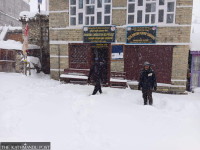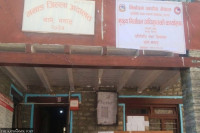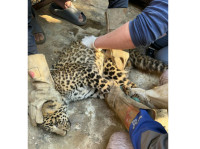Gandaki Province
China reopens both border points in Gorkha, locals gear up for trade
While Rui La will remain open for one month, Ngui La will operate for three months.Hariram Upreti
China has reopened both of its border points—Rui La and Ngui La passes— in Gorkha district. The elated locals in northern Gorkha are preparing to resume trade activities across the Nepal-China border. The Ngui La border point at Chhekampar in ward 7 of Chumanubri Rural Municipality reopened on July 1 while the Rui La pass at Samagaun in ward 1 reopened on July 5. According to local representatives, Chinese authorities have permitted limited reopening of the border for a set duration.
While Rui La will remain open for one month, Ngui La will operate for three months. Locals from the remote Chhekampar and Samagaun regions are preparing to cross into Tibet to buy essential goods, especially food and daily necessities.
These border points were completely shut for five years during the Covid pandemic but have reopened for limited periods since last year. Before the pandemic, the Ngui La pass used to remain open year-round.
Tashi Dorje Lama, the chair of ward 7 of Chumanubri Rural Municipality, said residents plan to sell valuable medicinal herbs like yarsagumba and wild garlic in Tibetan markets and bring back food supplies. “We haven’t crossed the border yet, but people are getting ready. Last year it was open for only a month, but this time we have a three-month window,” he said.
Due to the proximity, locals prefer trading with Tibet rather than traveling down to Arughat or Gorkha Bazar. “Though prices are similar, it takes just a day to reach the Tibetan market, while traveling down to the lower Gorkha region can take at least two days. Using our own horses for transport also makes it cost-effective,” Lama added.
Currently, residents rely on mules to carry goods from Arughat or Arkhet at three times the cost. The journey takes three to four days, with transport fees ranging from Rs35 to Rs40 per kg from Pangsing to Chhekampar. Locals often prefer to travel to Tibet using their own horses, avoiding these expenses.




 9.89°C Kathmandu
9.89°C Kathmandu.jpg)











